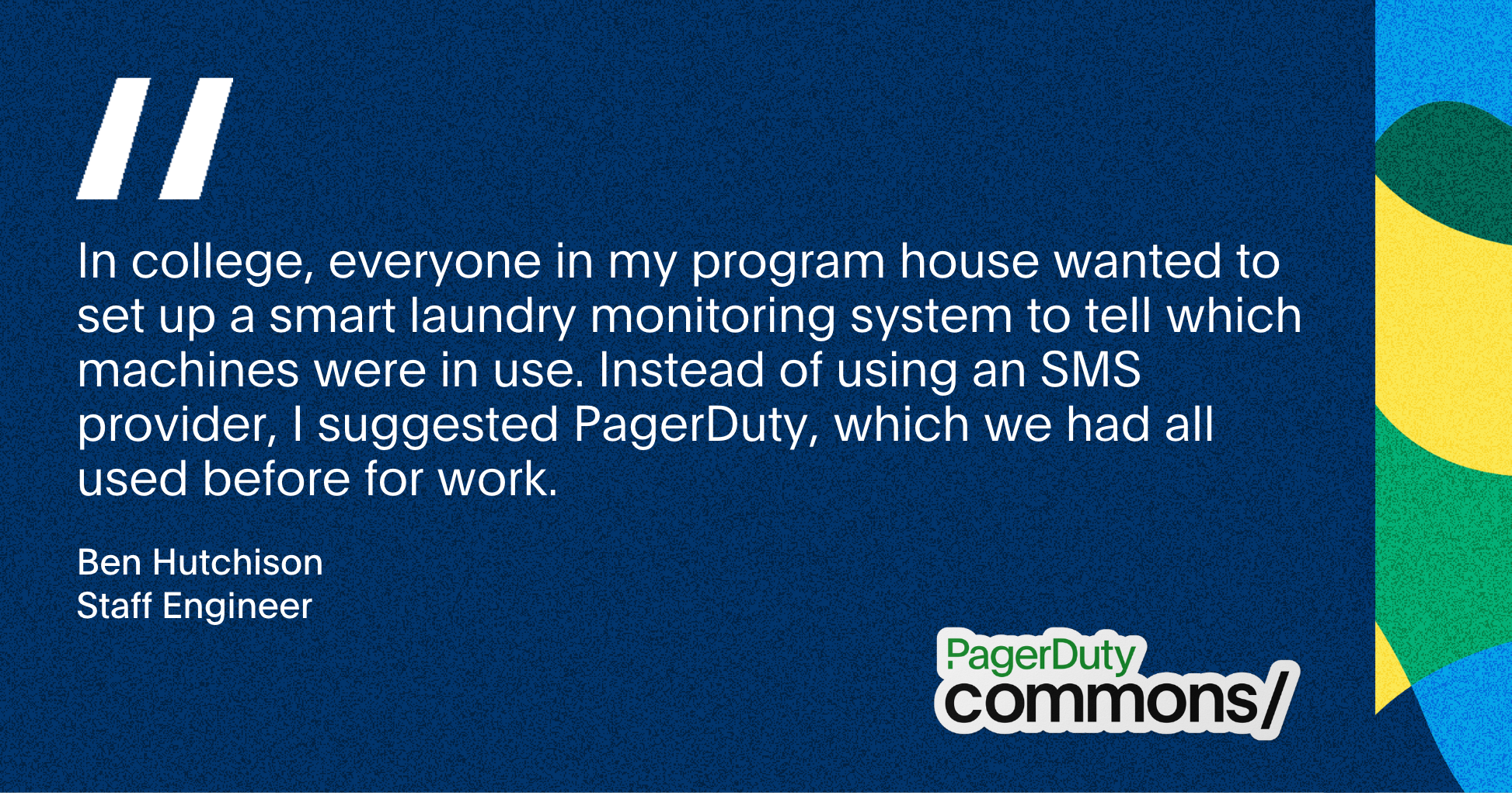When Ben posted his LaundryDuty open source project to the PagerDuty Community, it immediately caught our attention. We then invited him to join the HowToHappyHour live stream (watch below), where he demoed how this unique system works.
Can you share a memorable moment in your career or any “one thing we can’t guess from your LinkedIn profile” type of story?
I like hooking up different devices to each other. At one point I was using 6 monitors connected to my work desktop. I also had a setup where a spinning red light would turn on whenever a Jenkins build broke. There was a candy bowl near my desk for people, and it was sitting on a USB digital postage scale that I used to track candy weight over time in Graphite. To deploy the latest build of my work product to the staging servers, you could press a big red button in a wooden box my dad taught me how to build, and it would perform all the complicated deployment steps and show progress. It was also fun to figure out how to control a spacecraft simulator game’s engineering station with a MIDI DAW control interface with physical sliders and knobs.
Tell us more about your experience using PagerDuty.
In college, everyone in my program house wanted to set up a smart laundry monitoring system to tell which machines were in use, but it was prohibitively difficult because there was no power, bad network access, and no ownership or permissions to mess with the machines. As an April Fool’s prank, I made a convincing mock website that showed laundry status and allowed you to prepay for a machine, which went to my personal PayPal account. I fooled a lot of people with that one.
After I moved into a place without any of those issues, I would get frustrated when I didn’t hear the buzzer when a load finishes or forgetting to set a timer, and wishing I could get automatic push notifications with reminders. My original idea from 2014 was coil spring vibration sensors sending SMS messages, but what actually worked was the invention of inexpensive off-the-shelf wi-fi smart outlets with current sensors, and clamp current transformers with an ADC and Raspberry Pi.
Instead of using an SMS provider, I asked my two roommates what kind of push notifications they preferred, and between the three of us, we each wanted different ones (SMS, email, mobile app).So I suggested PagerDuty, which we had all used before for work. I wrote my own .NET libraries and tried to design and test it as nicely as I could. In the end I learned a lot about smart outlets, current transformers, voltage dividers, and ADCs.
What type of resources do you like/use the most when in need of support?
The Events API allows a lot of flexibility, and the Android app is much more convenient for viewing and interacting with rich notifications than email or SMS.

👉 Check out Ben’s .NET client library for Events API V2 in the PagerDuty’s API Client Libraries.
Have you built a library or other wrapper for any PagerDuty APIs? Let us know in our Developer forums! We're always happy to add new projects to our directory. Please note that all submissions must support or rely on current, non-deprecated, public APIs to be included in the directory.
⭐️ Be the next PagerDuty Commons member featured!
Worked on a custom integration, extension, or add-on using PagerDuty? Have a success use case story? Wrote an article that can help the dev community?
Join the Community and share your project with us to get the chance to be featured in PD Commons content across social channels!

